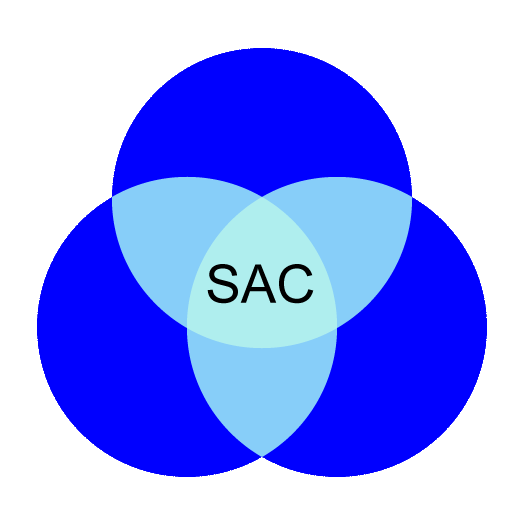
 |
South Atlantic CouncilPromoting communication and understanding
|
|
The South Atlantic: Looking AheadA conference organised by the South Atlantic Council on 15 April 2011The views expressed below were those of the speaker. None of the presentations are endorsed by the Council. Management of Argentine-British RelationsPresentation by Howard PearceAny future strategy for addressing the Falklands issue has to be grounded in political reality. Here are some of the key elements: Since 1982 successive UK Governments have provided a copper-bottomed guarantee that they will respect the wishes of the Falkland Islanders about their future. This policy is supported by all mainstream political parties in the UK. Moreover, in the unlikely event of the UK Government being inclined to water down this guarantee, Parliament would almost certainly place a brake on any such tendencies. The rows in Parliament in the late 60s and again in the late 70s when respectively Lord Chalfont and Nicholas Ridley proposed compromises on sovereignty have not been forgotten. Government Ministers know that compromise on sovereignty in the face of Islander opposition spells political trouble and – even if inclined in that direction – they would not take the risk. The view of the Islanders on sovereignty remains monolithic: no compromise in any circumstances. Whatever the links may have been at the personal and practical level between the Falklands and Argentina in the past, as viewed from the Islands Argentina is a foreign country, inhabited by people who speak a foreign language and have an alien culture and a separate history. That history is characterised, moreover, by a tradition of political instability, periodic economic collapse, and policies hostile to the Falkland Islands, to islanders' wishes and to islanders' interests. Even in the 1970s, when the Falklands community was arguably in terminal decline and islanders felt insecure and under pressure from both Argentina and the UK, Islanders rejected any compromise on sovereignty. And their experience of that period, when years of rapprochement in the 70s were followed by the invasion in 1982, has only deepened their lack of trust in Argentina and resistance to compromise. Moreover, today's prosperous, dynamic and self-confident Falklands community has much less reason to entertain concessions than their predecessors 35 years ago. The Argentine claim remains and will not go away. Falkland Islanders (and the UK Government) are realistic about this – the claim is a fact of life. Clearly there are no votes in Argentina to be gained by surrendering the claim, and it is extremely difficult to imagine circumstances in which any serious Argentine politician would contemplate advocating this course. In short, there can be no easy – or even difficult – solution to the core dispute. The leaseback proposal, which still seems to be favoured in some quarters, will not run with Island opinion today any more than it did 32 years ago, nor will any other attempt to "split the difference". The inescapable conclusion is that we have to reconcile ourselves to "managing" the problem rather than solving it for the foreseeable future. The terms on which the problem is managed will largely be set in Buenos Aires. The Argentine Government's current policy of de facto economic blockade of the Falklands leads up a cul de sac. While it may be good domestic policy, far from forcing concessions from the Islanders or the UK Government it only reinforces the Islander inclination to have nothing to do with Argentina and their determination to brook no compromise. A friendly, helpful Argentina, more in the Di Tella mode, is more difficult for the Islanders to handle – although it would have no impact on the views of even the most sophisticated members of the Falklands community on sovereignty. It should be noted that, sovereignty apart, Islander opinion is not monolithic on the relationship with Argentina. Falklands society is more sophisticated, cosmopolitan and complex than it was in the 1970s. There are various strands: from the die-hard opponents of developing any kind of relationship with Argentina, who are vocal but not necessarily in the majority, to those who take a more nuanced and flexible approach, e.g. to visits by Argentine 1982 veterans and their families and to the fostering of personal, social and cultural relations with Argentina. But even this latter group will be wary of developing any degree of dependence on Argentina similar to that which existed in the 70s and makes the Islands potentially vulnerable to political pressure from the Argentine Government. Oil is a complication, but also an opportunity. It is regrettable that the current Argentine Government denounced the agreement concluded in the 1990s which opened the door to at least limited co-operation in this area. Meanwhile exploration continues, and extraction will proceed if commercial finds are made and the world price continues at current levels. But if a closer relationship between the Falklands and Argentina is to be established, at least at the personal and cultural level, there has to be at least a tacit acceptance in Argentina that sovereignty will not be on the agenda for the foreseeable future. *** *** Howard Pearce was Governor of the Falkland Islands from December 2002 until July 2006.
|
|
Copyright: South Atlantic Council, 2012. Any text on this website may be freely used provided that (a) it is for non-commercial purposes, (b) quotations are accurate and (c) the South Atlantic Council and the website address - www.staff.city.ac.uk/p.willetts/SAC/INDEX.HTM - are cited. Page maintained by Peter Willetts [P dot Willetts at city dot ac dot uk]
Last amended on 16 Nov 2012. |